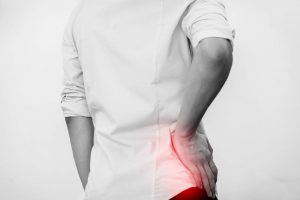Back Spasms
 One of the most common forms of back pain that affect almost every person that walks the Earth, back spams can present in a range of severity from mild to severe and can last over time a short duration or chronically through one’s life. Back spasms create pain from irritated muscles that over tighten and loosen at seemingly random intervals of time without you controlling them. No part of the back, or body for that matter, possesses immunity to the possibility of muscle spasms. Fortunately, back spasms, either in the neck, upper back, mid back, or lower back, rarely require surgical intervention and respond well to medication and conservative treatments.
One of the most common forms of back pain that affect almost every person that walks the Earth, back spams can present in a range of severity from mild to severe and can last over time a short duration or chronically through one’s life. Back spasms create pain from irritated muscles that over tighten and loosen at seemingly random intervals of time without you controlling them. No part of the back, or body for that matter, possesses immunity to the possibility of muscle spasms. Fortunately, back spasms, either in the neck, upper back, mid back, or lower back, rarely require surgical intervention and respond well to medication and conservative treatments.
What causes back spasms?
In the field of orthopedics back spasms result from a soft tissue injury. Injuries causing back spasms include damage to the muscles, tendons that attach muscles to bone, and ligaments that hold you bones in their proper places. Also, injuries to the bones and discs of the spine that change the structure of the spine produce imbalances to muscles throughout the back leading to increased risk of damage to the soft tissues. The spasm originates in the strained muscle from uncontrolled contraction that either pulses rapidly or tightens and refuses to release. When the muscle over tightens and refuses to release over a prolonged period we refer to it as a cramp.
Treatment for back spasms
Treatments for back spasms include many options, but a good start to treating a spasm at home includes massaging out the spasm by placing firm pressure on the afflicted muscle to try and make it release. Following up with either hot or cold treatments helps to relax the muscle and alternating a heating pad and ice pack every twenty minutes increases effectiveness. NSAIDs offer some relief when used, but do not offer immediate relief and have side effects when used for long periods of time. Dehydration causes spasms to intensify, so hydrating with an electrolyte may offer short term relief. When home remedies fail to offer significant relief, you should plan a trip to an orthopedic specialist for treatment. You can expect your specialist to rule out more significant issues and control your back spasms with oral muscle relaxers and possibly regional or trigger point injections of corticosteroids. Physical therapy can speed the recovery and help prevent the back spasms from returning by strengthening and balancing the muscle load in the afflicted region. A provider may want to perform an EMG.
Preventing back spasms
Taking preventative steps can chase away and keep away back spasms in many cases. Preventative steps include stretching out your back regularly, balancing and strengthening the supporting muscles of the back and abdomen, hydrating yourself properly, and taking steps to lead a more active and lower stress lifestyle. Mindfulness meditations help relax the entire body and short ten-minute sessions can lower the tension of your muscles for days. Engaging in activities such as yoga will increase flexibility and lower stress. Losing weight also offers many advantages of not only back pain, but also pain of the feet, ankles, knees, and hips.

